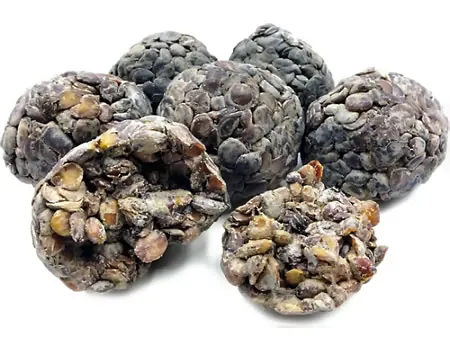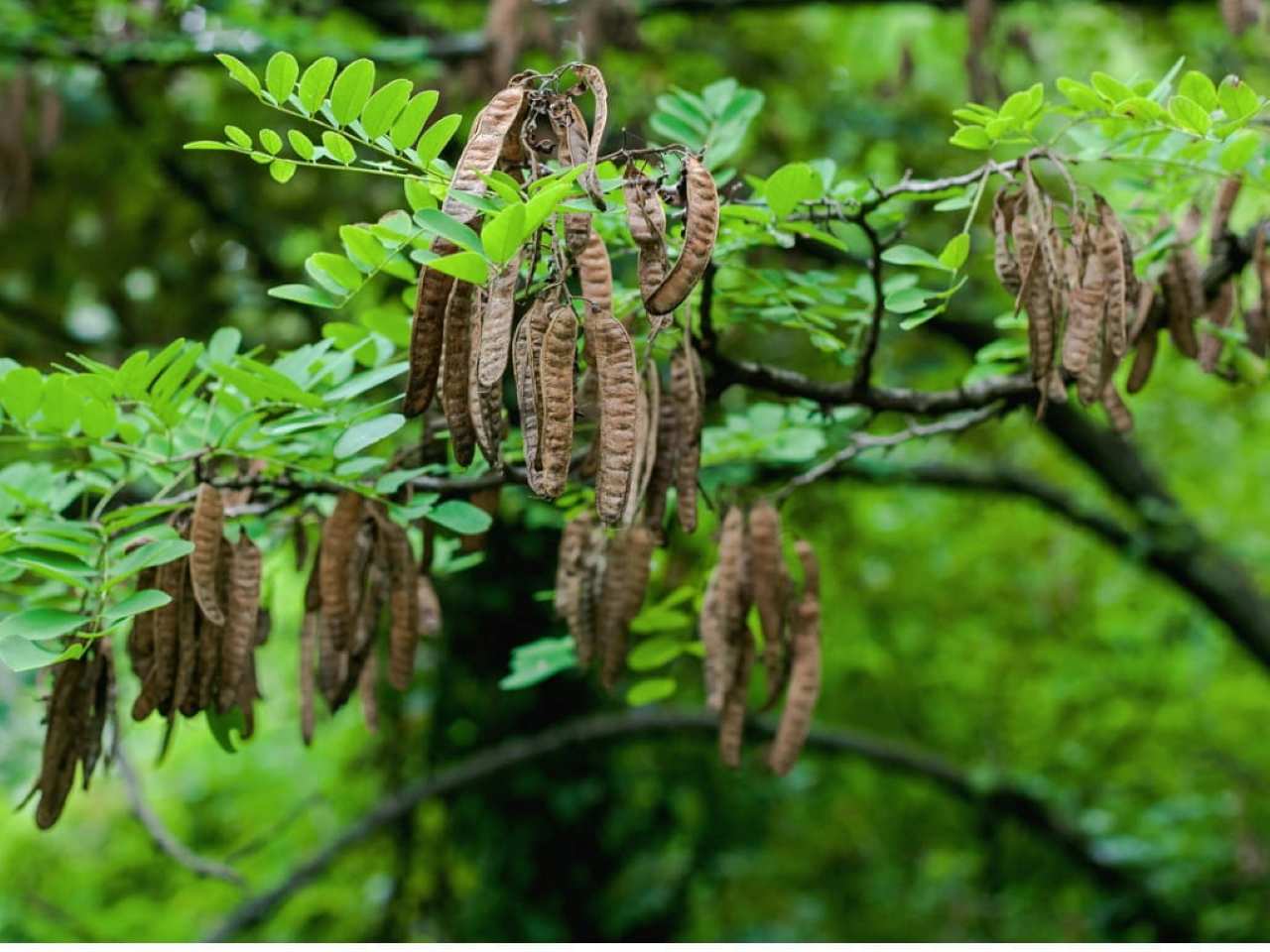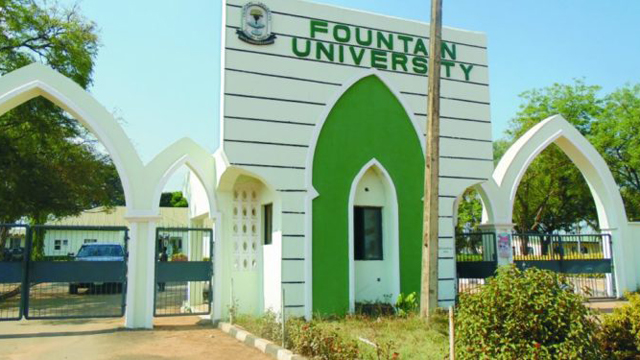ON a bright Saturday morning, 89-year-old Malam Gwadoddi Shehu sat in the corridor of his home in Gwadoddi Village, Rabbah Council of Sokoto State, reflecting on the past. Even now, in his old age, he recalls his younger years as a farmer cultivating vast fields dotted with African locust bean trees. Those memories came alive as he spoke when Dataphyte visited in late September.
Memories Of A Tree On The Brink
“I owned 13 African locust trees back in those days, because it was a pride for us as farmers. You are rated by the number of economic species your farmland has. But now they are all gone due to excessive flooding and the insecurity challenge facing our community,” said Shehu.
In Gwadoddi village, African locust trees were among other species considered as symbols of economic independence for farmers who own them. The history of its inheritance among households is also of pride.
Shuaibu Shehu, a farmer and son of the octogenarian, said the species is highly regarded as a source of income generation for households where the proceeds from the trees were used to support the family’s farming cultivation, which often funds the educational expenses of their children.
“When we were growing up, we were happy to see our parents earning from these trees, especially African locust trees. Our whole day was spent in plucking and drying the beans, which we gathered in bags to sell. We used to sell them to fund our education,” he said.
African locust bean, locally called ‘Dawadawa’, is a proteinous fruit used in spicy food among households in northern Nigeria. However, reports show that the burning of forests by counter-insurgency efforts to eliminate armed bandits, who use such trees as fortresses when launching attacks on communities and flooding, are threatening the livelihoods associated with its fruits and endangering the widespread growth of the trees, and causing biodiversity loss.
Mr. Shehu (Jr) explained that many of the economic trees traditionally passed down through families have been lost to flooding. He added that even more of these trees, especially those deep in the community’s forests, are now out of reach because the area has fallen under the control of armed bandits. “There were thirteen African locust bean trees in my father’s field. The flood took all of them,” he said.
Collateral Damage In The Fight Against Banditry
Insecurity is as much of an amplifier to the destruction of these trees as flooding is. Mr. Shehu (Jr) also accounted that the military fight against armed bandits terrorising the communities by burning the sanctuary forests is fast decreasing the species, and discourages farming.
Like Shehu (Jr), Zubairu Auwal, a 40-year-old farmer, recounted that no more than 10 of his ancestral trees have been destroyed owing to military operations in the forests.
Auwal said, “these security agencies operating within these forests believed armed bandits were using the trees as fortresses before launching attacks.”
According to a report from the National Strategy for Combating Wildlife and Forest Crime in Nigeria (2022-2026), Nigeria is home to over 4,715 vascular plants, and likely many more undocumented species.
Since 2011, Sokoto, long known for its dry, semi-desert climate, has experienced a noticeable shift in weather patterns. Flood-prone areas have emerged, contributing to some of Nigeria’s worst flooding in a decade. What was once unusual has now become an almost yearly occurrence.
A recent study shows that rainfall in northern Nigeria has increased by about 63 per cent between 2007 and 2023. In 2024 alone, flooding affected 34 states, killed 603 people, displaced 1.3 million others, and destroyed more than 200,000 homes. Beyond the human toll, the flooding has further strained the country’s already fragile biodiversity.
The loss of locust bean trees has reduced the availability of fresh locust beans in local diets, forcing many households to rely more on manufactured seasoning cubes and powdered flavourings.
According to Adedayo Moses, a chef based in Sokoto, the locust bean condiment remains central to local cooking. “It is one of the most important ingredients for sauces and soups here, and it is traded in significant quantities across West Africa,” he said.
“You can make baby food, and the leaves can be boiled, mixed with cereal flour, and eaten as vegetables. Also, the flower buds are edible and added to salads and are traditionally consumed as fresh food by the locals,” Moses said

Economic, Cultural Costs
Investigation revealed that the endangered species has forced the price of dried locust beans to increase beyond many locals’ reach, with a kilogramme of locust beans sold for N3,500 ($2.43) against the former price of N2,800 ($1.95) as of October 2025.
Alhaji Aminu, a dealer in African locust beans, said a bag of dried locust beans (100kg) now costs between N75,000 ($52.23) in the market after transporting them from Niger state, where it is abundant in commercial quantities.
This year, unlike last year, the weather also affected the price of the crop, Aminu told Dataphyte. “The market is brisk. In retail, dried locust beans are being sold for up to N80,000 per 100 kg,” he said.
Abubakar Gidan-dawake, a farmer at Sokoto central market, also confirmed this. He said that in the past, merchants could obtain the dried seeds more cheaply, but the price has since soared due to their decline in rural communities. We get some of the produce now transported from either Niger or any Southern states like Osun and Oyo.”
Hajiya Salamatu Shuni, a housewife living in Sokoto, commented on the health benefits, stating that the local seasoning contains antioxidant properties and can help treat hypertension and eye problems. She said this is why many people explicitly use this seasoning in their meals.
Shehu Aliyu, an environmental activist, noted that the African locust is a multipurpose tree with seeds, pods, fruit pulp, and leaves that are edible and used as cooking or drinking ingredients. “The tree is particularly valued for its fermentable seeds. They are fermented to prepare a condiment called ‘Dawadawa’ among Hausa locals.” That has been the situation in my community,” said Mr Aliyu, who also heads a Go-green project that advocates for tree planting.
The National President of the Botanical Society of Nigeria and Director, Centre for Biotechnology and Plant Tissue Culture at Usmanu Danfodiyo University, Sokoto, Professor Adamu Aliero, says tree species in Sokoto are being endangered. “One of them is flooding, which is not conducive for the Locust Trees because when attacked by fungus, bacteria, even the biggest trees can dry up suddenly.”
He also notes that armed bandits have taken advantage of ungoverned forest to establish fortified enclaves over local communities and their ancient species trees, which has endangered most economic trees.
Military Denial, Civilian Realities
A forestry researcher, Ifeanyi Onwuzuruigbo, who had studied extensively on the ungoverned forest spaces in Northern
Nigeria, said, “In these territories, state authority is either
completely absent or actively contested, eroding the state’s monopoly on legitimate violence or undermining its sovereign authority.”
This development, according to him, has prompted many locals to believe that the military-led counter operations in their communities contributed to the disappearance of these species, a claim the military denies.
But the spokesman of the Nigerian Army 8 Division, Lt. Col Olaniyi Joseph Osoba, says the claim does not reflect the inner workings of the Nigerian Army, which operates under what it described as “strict Rules of Engagement (ROE).
“This is not true because such actions would be counterintuitive to our core mission, which is to secure communities and protect the livelihoods of the citizens we are sworn to defend.
“Our operations are targeted specifically at neutralising bandits and other criminal elements, while ensuring the safety and security of the civilian population,” Lt. Col Osoba stated in a message sent to Dataphyte.
However, Lt. Col Osoba’s response does not reflect the realities of the locals during Dataphyte’s visit to the area. Isah Umar Gwadoddi, a member of the local vigilante who has been assisting in the military-led operations in the area, said the military could have underplayed the situation.
“There have been burnings of forests perceived to be hideouts of some armed bandits. In those areas, we have lots of economic species like African locust trees and baobab. Most of them are inaccessible to the farmers, while others must have been lost as a result of the bush burning tactics of the operation,” he explained.
A military commander who spoke on the condition of anonymity said the latest push under Operation Forest Sanity III, a rolling clearance campaign designed to uproot terrorist and bandit enclaves that have long exploited Sokoto’s sprawling forest as a sanctuary.
He adds that the campaign will persist “until all camps are dismantled and freedom of movement is restored. The military source collaborates with Nasir el-Rufai, a former governor of Kaduna, northwest state, urging the security operatives to “carpet bomb the forests” to wipe out bandits. “We can replant the trees after.”
However, a professor of agroforestry and forest management at Usmanu Danfodiyo University in Sokoto, Professor Abubakar Gwaram Bello, focuses his research on the African locust tree, warns that unless the ongoing insecurity is addressed promptly with military collaboration with communities and forestry researchers, many local tree species will remain at risk of endangerment.
“These criminals operate in the forest and establish their camps. On the other hand, the security agencies set such identified forests ablaze, and that automatically affects the economic trees in the areas,” Abubakar submitted. • This story was produced as part of Dataphyte Foundation’s Biodiversity Media Initiative project, with support from
Internews’ Earth Journalism Network.
By Tunde Omolehin






